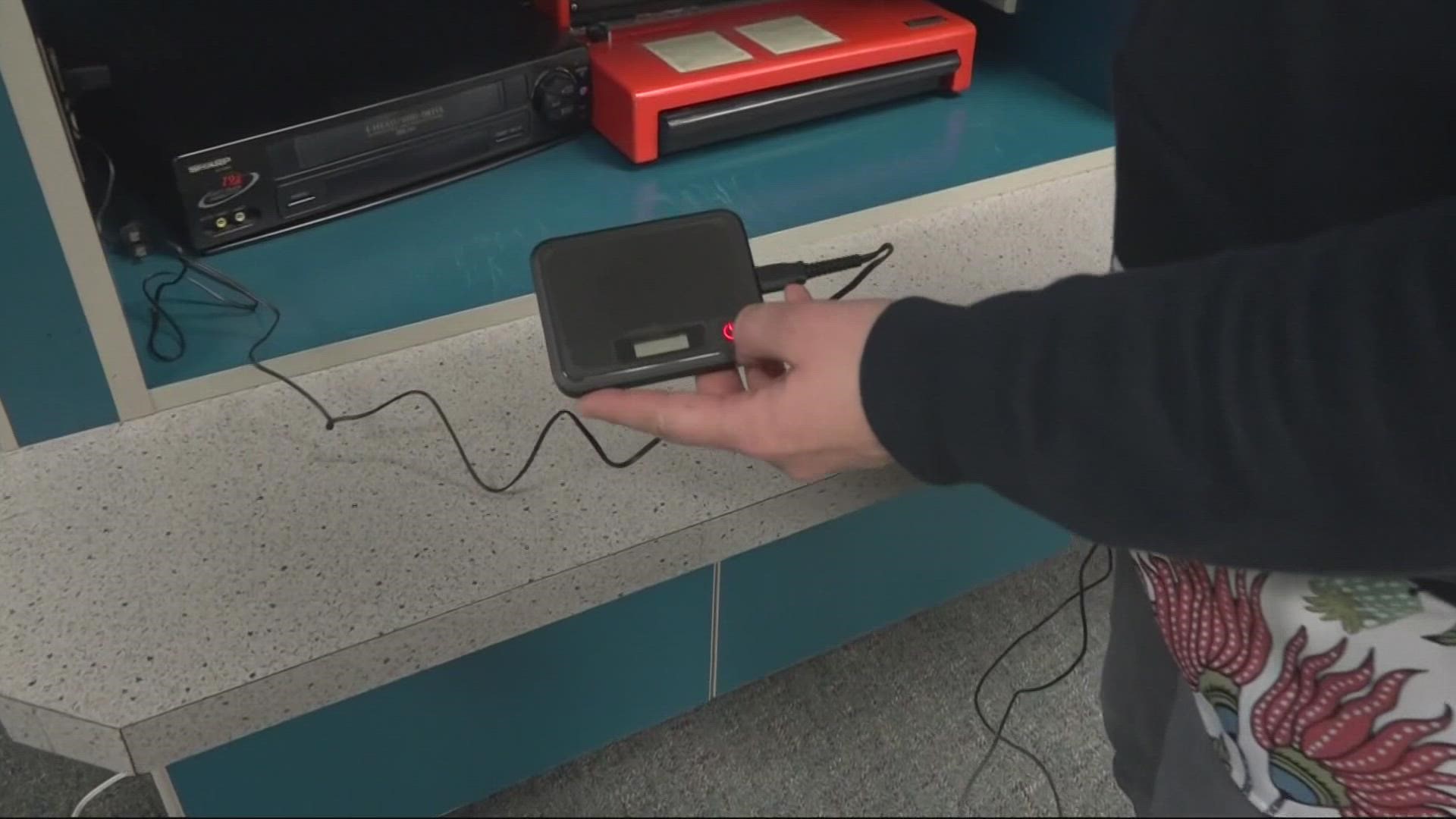PORTLAND, Ore. — High-speed internet used to be a luxury. Now, it’s a necessity for many who work from home, and once again, learn from home.
“It's a priority of ours to make sure students remain connected to schools and you have to have internet access to do that," said Don Wolff, the technology leader with Portland Public Schools (PPS). "So those students that don't have it at home? We will certainly find a way to get them the connectivity that they need."
The district handed out 3,000 hot spots, to ensure internet access, to students the last time schools were remote in this pandemic and told students to hang on to them even as classes started back in person this year.
Already this week, the district has handed out 400 more and said it has thousands of additional hot spots available if students need them.
RELATED: Here are the schools in Oregon and SW Washington that are moving to distance learning
Data put out by Oregon’s office of economic analysis, using census bureau numbers from 2018, shows that, in the metro area, white-non Hispanic students have a greater likelihood of having internet access at home compared to BIPOC (Black, Indigenous, people of color) students, even as family income rises.
Another, perhaps unsurprising report using numbers from 2020 shows that students in the metro area are more likely to have access to the internet at home than kids in rural areas.
Keeping students connected is a huge issue, especially now that thousands are going back to distance learning.
Portland schools’ technology chief said internet speed is a problem for some students.
“There are some students that are in outlying areas, that’s a problem of not re-investing in the infrastructure as a society, that there are a little bit darker and have less connectivity available to them,” said Don Wolff.
He said the hardest places for students to connect include the Southwest Hills, North and Northeast Portland, and East Portland.
RELATED: Bringing parent, teacher questions to Portland Public Schools
In November of 2020, voters approved a Portland bond of $1.2 billion. Part of that money paid to buy 40,000 chrome book laptops. That’s one for every student in the third grade and above to use while they are a student at PPS. Wolff said it is making this temporary transition back to remote easier since everybody already has their laptop.
Have a comment or story idea for Pat Dooris? Email him at pdooris@kgw.com

